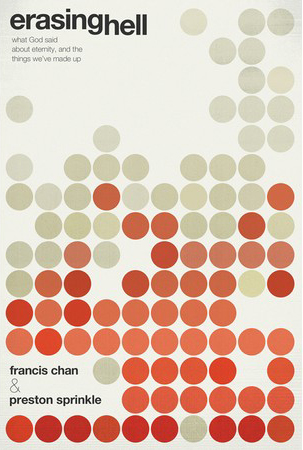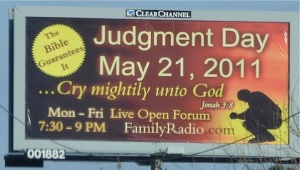By now you know that George Lucas released the latest version of Star Wars and he’s messed again with “the originals”. As expected, there’s been a huge outcry by the SW loyalists and as predicted, George Lucas could not care less. Nor could I.
Don’t get me wrong, I love the story of Star Wars. As a kid, I thought Luke Skywalker was the most amazing thing in the world. I remember praying for him so that I would see him in heaven (I was young and didn’t understand the world of actors. But fortunately, my wife explained it all to me last year).
I may not be a real Star Wars fan (like I’ve never read any of the books, I have forgot some of names of characters who appear for a split second and I got rid of my toy light saber after the fifth grade) but I do love Star Wars on so many levels. So here’s why I don’t care that George Lucas is changing the story again.
One, stories change. They have a life of their own. They are not scripts, they are stories.
Two, we change, and therefore at the very least, the way we tell the same story that we told many times before changes.
Three, the world is changing and therefore the way we are able to tell a story changes. Many of our stories became fixed and stagnate because when we went from sharing stories in person to in print and in media, the stories became fixed. Through an ideal world, our media would allow for the changing story every time we played the same dvd, (at least, we have reissues). BUT imagine the day, when a studio releases a movie, it flops and the audience gives feedback to fix it so when it’s released on dvd (or back in theaters or however we are consuming movies by then), it’s better! Don’t laugh, when the right people figure this out, we’ll have even more access to even better stories.
Here’s why I think this is interesting. Of all the stories I know, the gospel of Jesus is the greatest I know. The story of a God who creates humanity with free will, that rebels against him, that therefore allows death and evil into the world and creates suffering, pain, and despair is therefore redeemed by the same God who becomes one of them and offers humanity love, hope, and life. No offense to Skywalker but it’s a bit bigger than closing your eyes and shooting into an air shaft and blowing up a weapon planet.
The way I tell the story of Jesus changes too. The way you tell this story probably changes. I would even dare to mention, the way God tells the story changes as well. Are there not two creation accounts in Genesis? That post is coming soon. Even further, consider how the narrative of salvation unfolds throughout the entire Bible.
Maybe George Lucas is just imitating the original storyteller.
 Still, we found most of the residents to be cheerful. One woman we made a connection with frequently asked us to read Scripture to her and she would love to sing hymns. There were many like her which we found to be incredible. There has always been a Christian presence in the camp and many of the residents are professing believers. After our trip, the camp received resident missionaries whom we have been praying upon hearing the incredible news. I am curious to how the camp feels since their arrival.
Still, we found most of the residents to be cheerful. One woman we made a connection with frequently asked us to read Scripture to her and she would love to sing hymns. There were many like her which we found to be incredible. There has always been a Christian presence in the camp and many of the residents are professing believers. After our trip, the camp received resident missionaries whom we have been praying upon hearing the incredible news. I am curious to how the camp feels since their arrival. There are countless things to remember but one of my another highlight was getting a tour of the island on our free day by one of the residents … who was blind. I’m eager to meet up with him again and though I expect that he won’t remember me, we certainly remember him and his story of God’s deliverance.
There are countless things to remember but one of my another highlight was getting a tour of the island on our free day by one of the residents … who was blind. I’m eager to meet up with him again and though I expect that he won’t remember me, we certainly remember him and his story of God’s deliverance. What I Liked
What I Liked So the question needs to be asked – why do this?
So the question needs to be asked – why do this? What Happens When His Prophecy of Jesus’ Return Not Happen on May 21st?
What Happens When His Prophecy of Jesus’ Return Not Happen on May 21st? I know what some of you are thinking – Who is Andrew Himes?? I didn’t know either until I stumbled upon him on MPT’s blog. He is one of the grandsons of John Rice who was a pastor, revivalist and published the newsletter of the fundamentalist movement – “The Sword of the Lord”. I’ll put to you this way – John Rice helped launch Billy Graham’s career. At his funeral, Jerry Falwell called him “God’s man for the hour” and Andrew tells the story of how he did everything he could to not debate Falwell at the reception of his grandfather’s funeral.
I know what some of you are thinking – Who is Andrew Himes?? I didn’t know either until I stumbled upon him on MPT’s blog. He is one of the grandsons of John Rice who was a pastor, revivalist and published the newsletter of the fundamentalist movement – “The Sword of the Lord”. I’ll put to you this way – John Rice helped launch Billy Graham’s career. At his funeral, Jerry Falwell called him “God’s man for the hour” and Andrew tells the story of how he did everything he could to not debate Falwell at the reception of his grandfather’s funeral. Those who want to see how fundamentalism mutated from a good idea to what we have today. Pretty fascinating.
Those who want to see how fundamentalism mutated from a good idea to what we have today. Pretty fascinating.




Recent Comments